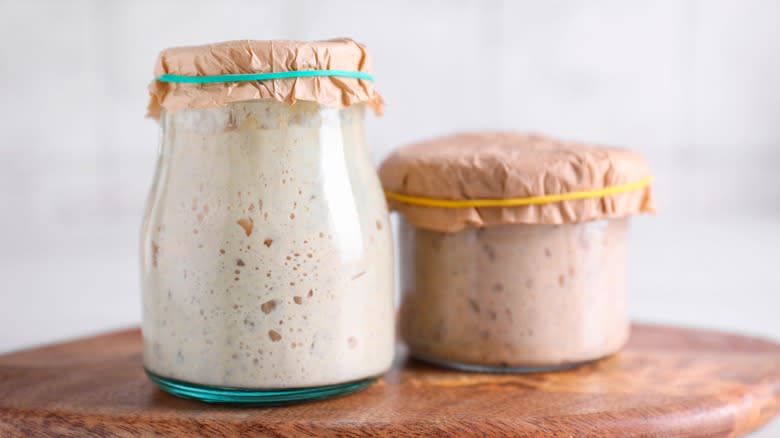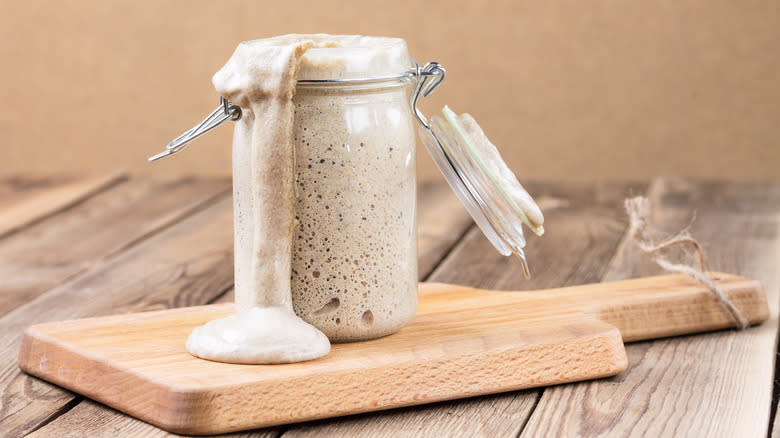What Smells Are Normal For Sourdough Starter?

We all know the intoxicating aroma of sourdough bread as it bakes, along with the instantly identifiable smells wafting from the dough as it rises and proofs, but your homemade sourdough starter might be more of a question mark when it comes to scent. That little jar of starter contains wild yeasts and lactobacilli, all feeding on flour to perform the rather miraculous job of leavening and flavoring your baked goods. As with many ingredients, the starter doesn't always smell or taste like the finished product.
A sourdough starter is a complicated system of yeasts and bacteria, and as they consume the flour that's there to keep them alive until the next feeding, they'll give off byproducts that can have less than pleasant smells. There's an alcohol aroma as the yeasts ferment starches, and there will be sour, vinegary smells from the bacteria. As the starter goes longer without a feeding, the changing balance of bacteria can cause a nail polish-like aroma. You might even get a cheesy, dirty foot smell, a whiff of musty body odor, or even vomit. This is related to the age of your starter, how recently the starter has been fed, and what yeasts and bacteria are present. Even the flour you choose for your starter and loaves can influence the amount of sour tang you'll smell and taste.
Read more: What Happens If You Accidentally Eat Mold?
Starters May Be Complicated, But Caring For Them Isn't

It's impossible to know exactly what yeasts and bacteria are currently hanging out in your mass of starter, but you can be sure all the odors in the jar are from those living critters. There are many varieties of naturally occurring yeasts and bacteria -- good and bad -- living in your flour, on your jar, and on all the utensils you use to get a starter going. A brand-new starter can have some yucky smells as a few of the bacteria we don't want begin to grow and multiply. They'll soon be crowded out by the bacteria you do want. Those beneficial lactobacilli make the starter more acidic and unfriendly to the bad guys, too. Eventually, you'll mostly experience sour alcohol smells, which can be a sign your starter is hungry for fresh flour.
Although there are some red flags signifying it's time to toss your starter, luckily none of these smells mean you need to begin again. Just keep feeding and discarding to strengthen the starter, and you'll notice any unpleasant smells will be rare. However, if you see or smell mold in the jar, that's the time to start again from scratch. Molds have spores that can already be all through the starter, so even if there seems to be just a spot, toss that batch out and begin again to be safe.
Read the original article on Tasting Table.


